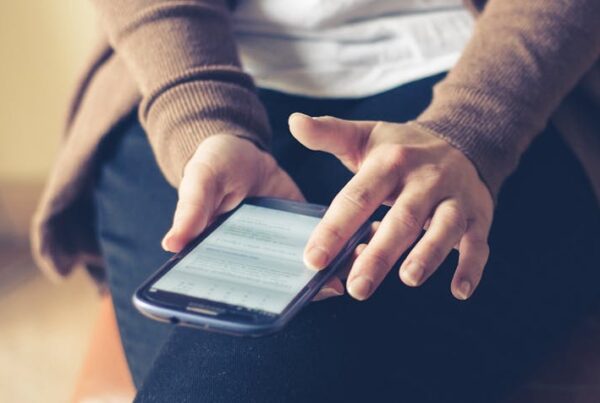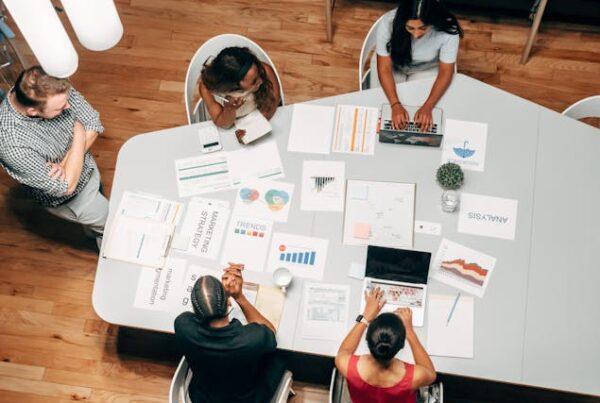Are you wondering whether social media is good or bad for students? Look no further, as we have the answer. Social media can have both positive and negative effects on students, and it ultimately depends on how it is used. At TweetAngels, we offer social media management services that can help students use social media in a more positive and productive way.
Is social media good or bad for students?
Social media can have both positive and negative effects on students. On one hand, it provides a platform for students to connect with their peers, express themselves, and access information and resources for their studies. It can also help them develop valuable digital communication skills that are essential in today’s world. However, excessive use of social media can lead to distractions, procrastination, and even cyberbullying. It’s important for students to use social media in moderation and be aware of the potential risks.
1. The positive impact of social media on student engagement
Social media can have a positive impact on student engagement by providing a platform for students to connect with each other, share ideas, and collaborate on projects. It also allows students to engage with educational content in a more interactive and personalized way, making learning fun and accessible. For example, students can join study groups, participate in educational forums, and follow educational accounts that provide valuable resources and information. Additionally, social media can be used as a tool for communication between students and their teachers, making it easier to ask questions, seek help, and receive feedback on assignments.
Social media as a tool for educational resources and networking
Social media platforms offer a wealth of educational resources and networking opportunities for students. Many educational institutions and organizations have a strong presence on platforms like Twitter, Facebook, and Instagram, sharing valuable information, news, and updates about academic programs, scholarships, and events. Students can also connect with peers, professors, and professionals in their field of interest, creating a strong professional network that can be beneficial for future career opportunities.
Additionally, social media allows students to access a wide range of educational content, such as educational videos, tutorials, and online courses, which can supplement their learning outside of the traditional classroom setting. Many students have found success in using platforms like YouTube and LinkedIn as a means of acquiring new skills and knowledge that may not be available through their formal education.
Overall, social media has the potential to greatly enhance the educational experience for students, providing them with valuable resources and networking opportunities that can contribute to their academic and professional success.
The negative effects of excessive social media use on academic performance
Social media can have a detrimental impact on the academic performance of students when used excessively. Students who spend a significant amount of time on social media platforms are more likely to experience reduced focus and concentration on their studies. With the constant distractions and notifications, it becomes challenging for students to devote their full attention to their school work.
Moreover, excessive social media use can lead to poor time management and procrastination. Students may find themselves spending hours scrolling through their social media feeds instead of completing their assignments or studying for exams. This can ultimately result in lower grades and academic underperformance.
Additionally, the use of social media late at night can disrupt sleep patterns, leading to fatigue and decreased cognitive functioning the next day. This can negatively impact a student’s ability to concentrate in class and retain information, further affecting their academic performance.
In conclusion, excessive social media use can have a detrimental impact on the academic performance of students. It is important for students to be mindful of their social media usage and establish healthy boundaries to prioritize their education.
4. Cyberbullying and its impact on student mental health
Social media can unfortunately be a platform for cyberbullying, which can have a significant impact on student mental health. Cyberbullying involves using technology to harass, threaten, embarrass, or target another person. This can include spreading rumors, sharing personal information, or sending hurtful messages.
For students, being the target of cyberbullying can lead to increased levels of anxiety, depression, and feelings of isolation. It can also negatively impact their academic performance and overall well-being. The constant accessibility and connectivity of social media can make it difficult for students to escape from cyberbullying, as it can follow them wherever they go.
It’s important for both students and educators to be aware of the signs of cyberbullying and to take appropriate steps to address it. This may involve reporting the bullying to the social media platform, seeking support from parents or school counselors, and taking steps to protect personal information. Encouraging open communication and creating a supportive environment can also help students feel safe and supported in navigating the negative effects of cyberbullying.
Conclusion
Overall, social media can have both positive and negative effects on students. It’s important for students to use social media responsibly and in moderation. With the right guidance and control, social media can provide students with a platform for creativity, self-expression, and learning. However, it’s also important to be mindful of the potential negative effects, such as distraction, addiction, and mental health issues.
At Tweetangels, we understand the power of social media and the impact it can have on students. That’s why we offer services that can help students and individuals alike navigate the world of social media more effectively. Our social media management services can assist in creating a positive and impactful online presence, while our followers, likes, and views can help students boost their presence and engagement on social media platforms. With our competitive prices and real followers, likes, and views, students can enhance their social media experience while maintaining authenticity and integrity. It’s all about finding the right balance and utilizing social media to its full potential.


